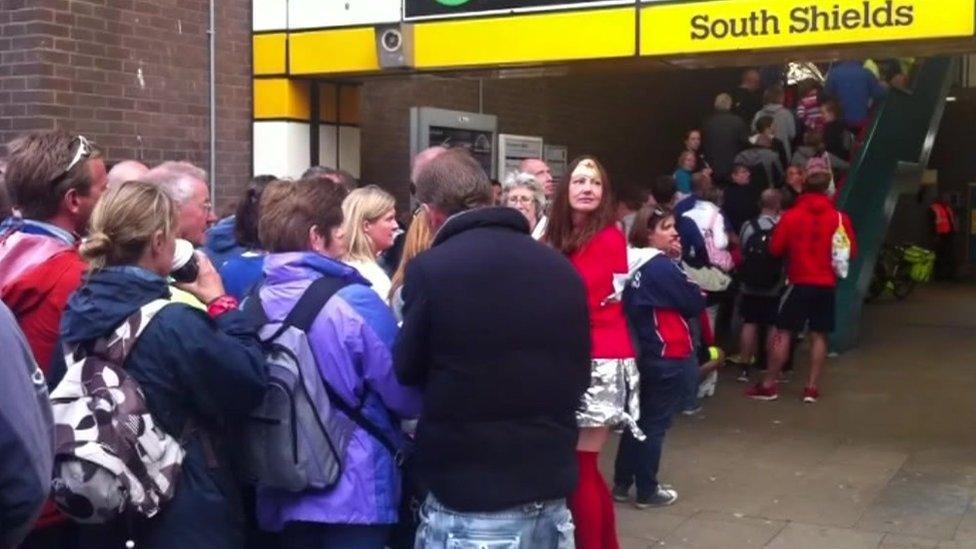Metro Great North Run overcrowding report blames operator
- Published

Look North viewers filmed the long queues as increased numbers of passengers tried to get on too few Metro trains
Long queues, overcrowding and passengers left on Tyne and Wear Metro, external platforms during the 2015 Great North Run were caused by an "intentional, sizeable reduction" in train numbers by its operator, a report has found.
Known driver shortages, power failures and illness caused by overcrowding meant "significant" delays, it said.
Service operator DB Regio Tyne and Wear (DBTW) apologised "unreservedly".
Metro owners Nexus said it was working to make sure it did not happen again.
More than 55,000 people took part in the half marathon on 13 September.
Early in the day six trains failed or were cancelled, on top of the already reduced service, leaving capacity down by between 25% and 44% across the network, the Nexus report said.
Squeezing large numbers of passengers onto fewer overcrowded trains and treating those who subsequently felt unwell also caused delays, it added.
'No excuses'
Disruption also meant trains bunched together, tripping overhead power lines.
The report into what happened concluded DBTW addressed driver shortages by reducing the timetable and did not inform Nexus or its own directors.
Nexus staff failed to notice the number of trains planned did not meet its requirements.
Additional driver shortages on the day made the situation worse.
DBTW managing director Sharon Kelly said she made "no excuses for what happened".
"Mistakes were made in terms of planning for this event, which have been subject to a review that has now concluded, and we have immediately taken actions to ensure this never happens again," she said.
Complaints by customers relating to the race rose from 5 in 2014, to 517.
Nexus managing director Tobyn Hughes apologised and said the company was "working closely" with DBTW to "prevent a repeat of the problems".
The report's recommendations include DBTW reviewing plans for future marathons, addressing driver shortages and improving communication of problems.